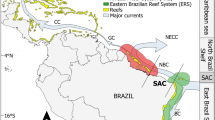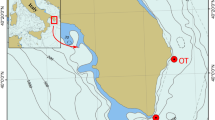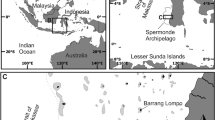Abstract
To answer completely the letter from Prof. Davis, published in NATURE of Sept. 3, would take too much space, so, as he suggests, I leave my papers to speak for themselves when they appear. To explain the presence of basaltic stones on the ‘barrier’ reef by a filling in of the lagoon, and its re-excavation, is really a special pleading against the simpler hypothesis of a once continuous reef; I can myself suggest a much simpler alternative, namely, by their being floated across entangled in the roots of trees, floated out to sea by floods. I reject this means of transport, however, because the stones are invariably rounded, which could only be the ease when the tree has been uprooted from an alluvial flat. The reefs and their embedded stones are certainly pre-glacial, when such flats were of small extent, especially if, as Prof. Davis holds, the valley mouths were drowned, and the stones, in the great majority of cases, could have been only angular fragments of the rocky sides of torrents.
This is a preview of subscription content, access via your institution
Access options
Subscribe to this journal
Receive 51 print issues and online access
$199.00 per year
only $3.90 per issue
Buy this article
- Purchase on Springer Link
- Instant access to full article PDF
Prices may be subject to local taxes which are calculated during checkout
Similar content being viewed by others
Author information
Authors and Affiliations
Rights and permissions
About this article
Cite this article
CROSSLAND, C. Barrier Reefs of Tahiti and Moorea. Nature 120, 618–619 (1927). https://doi.org/10.1038/120618a0
Issue Date:
DOI: https://doi.org/10.1038/120618a0
Comments
By submitting a comment you agree to abide by our Terms and Community Guidelines. If you find something abusive or that does not comply with our terms or guidelines please flag it as inappropriate.



